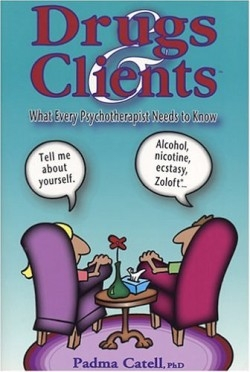Drugs and Clients
What Every Psychotherapist Needs to Know
While most experts in psychopharmacology are psychiatrists, they represent less than ten percent of physicians, so most prescriptions for psychiatric drugs are written by internists, family practitioners, pediatricians, and gynecologists. At the same time, psychologists, social workers, and counselors provide the most psychotherapy, but they cannot prescribe drugs. This book is intended to help these professionals understand the benefits and hazards of medication, so they can better help their patients and consult more effectively with prescribing doctors.
The author, a psychologist with a degree in biology, teaches pharmacology to graduate students; furthermore, she writes clearly and succinctly. Her book, while technically fairly sophisticated, serves a larger audience than the title suggests: patients, their families, physicians, and public health workers will benefit from this text, which deals mainly with treatment of conditions like anxiety, insomnia, ADHD (attention deficit hyperactivity disorder) depression, and psychosis, but includes chapters on alcohol, stimulants, and recreational drugs.
Catell explains the effects of caffeine, the use of supplements, herbs, and oils, and pain medication. She goes beyond drugs to discuss ECT (electro-convulsive, or “shock” therapy) and TMS (transcranial magnetic stimulation). She includes six appendices on brain function and mechanisms of action of various substances, about which less is known for certain than most laypersons realize. Tables and diagrams summarize and clarify the text.
Each topic reviews diagnosis and etiology, including the relative importance of heredity and environment, if known. Catell’s references are up to date, but she could have given more critical attention to the infrequent but life-threatening side effects of popular SSRIs, including Prozac and Paxil (although she does mention sexual side effects and the use of Viagra).
Managed care and health insurance plans have pushed psychiatrists increasingly toward shorter sessions focused on medication, not psychotherapy, which is assigned increasingly to non-medical (and less expensive) practitioners. Splitting therapy in two parts requires that psychotherapists, who know their clients better than most physicians, also know a significant amount about medication, hence the need for this book.
A related controversy is outside the scope of this book: some psychologists want training in pharmacology and, with medical supervision, to write prescriptions for therapy patients. Despite protests from the American Psychiatric Association, two states (New Mexico and Louisiana) have passed legislation allowing this experiment to proceed. Catell’s excellent book stands as evidence that psychologists could bring an important perspective to the dispensing of drugs that most physicians lack: mental health expertise.
Reviewed by
E. James Lieberman
Disclosure: This article is not an endorsement, but a review. The publisher of this book provided free copies of the book to have their book reviewed by a professional reviewer. No fee was paid by the publisher for this review. Foreword Reviews only recommends books that we love. Foreword Magazine, Inc. is disclosing this in accordance with the Federal Trade Commission’s 16 CFR, Part 255.

